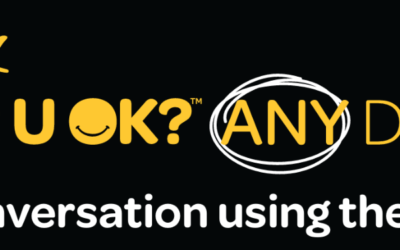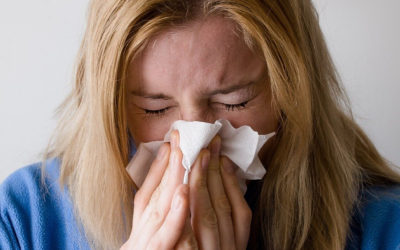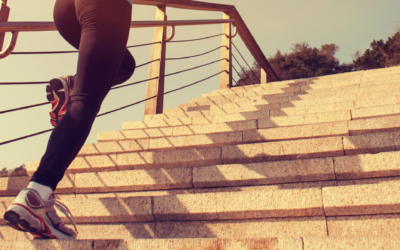Ramadan starts soon, so we caught up with Clicks IT Recruitment Victorian State Manager, Fatema Galabhai, to discuss the 30 days of fasting ahead and some of the best ways to keep healthy throughout this period!
Can you let us know a bit about your history with Ramadan?
Being born into a Muslim family, I have always practised 30 days of fasting during Ramadan.
Fasting during daylight hours for the month of Ramadan (Sawm) is one of the Five Pillars of Islam – the obligations that every Muslim must satisfy to ensure they are living a good and responsible life according to Islam.
How does your diet change during Ramadan? Do you usually eat breakfast and dinner as normal, or do these meals change to accommodate for skipping meals during daylight hours?
My meals change slightly, but I also have a different set of circumstances as I eat a keto (Ketogenic) diet.
Keto means I’m on a very low carb diet, I usually find Ramadan even harder – quick ‘fuel’ foods such as a slice of bread or a bowl of noodles are off-limits, so I need to plan carefully.
For breakfast (Suhoor or Sehri), I have a bowl of Greek yoghurt with berries, topped with ‘Munch’ – these are clusters of nuts, seeds and dried berries that also make a great snack. Supermarkets are now flooded with many keto-friendly options so over the years this has become easier. Finally, I sneak in a morning coffee as I’m not able to have one during the day.
When deciding on breakfast, I also have to be very wary of time – I need to say my morning prayers; however, as soon as I’ve said my first prayer, I’m unable to eat until the sun has set, meaning I need to eat very early in the morning.
After the sun has set, I say my evening prayer before breaking the fast.
First, I have a pinch of salt to cleanse my palate. This also acts as an antibacterial agent to remove any bacteria that has built up during the day as I’ve been unable to eat or drink anything since sunrise.
As most do, I then eat some dates for natural sugar and also as a ritual when breaking the fast. I then drink plenty of water to rehydrate myself and I usually sneak in another coffee to satisfy my cravings.
Every Iftar is a celebration during Ramadan. Iftar usually involves families or communities gathering for large, traditional feasts together. As I’m thinking about food at least 70% of the time during Ramadan, I find myself instantly satisfied when I taste the first morsel of food at the end of the day. Keto also helps with curbing food cravings.
Most people still continue their exercising routines during Ramadan. I personally still maintain my exercise after Iftar. It’s not about beating your personal best but staying healthy and active. This period is also great to cut down body fat and get lean.
Are there any particular foods or drinks you recommend consuming during Suhoor or Iftar?
Essentially, I recommend eating healthily. Above all, you don’t want to stock up on carbs in the morning as these burn quickly and you’ll find yourself crashing before the end of the day. You should definitely steer clear of processed foods for this reason.
I find sugar-free isotonic sports drinks to be good fuel for the day ahead and they can also help replenish fluids you’ve lost by the end of the day, so they are a personal favourite of mine.
I also prepare a quick drink made of jaggery/palm sugar, ginger, lemon slices and some mint leaves. Brew this on low heat for 20 mins and put it aside to chill. This gives me instant energy in the evenings especially if I have a high intensity workout.
Are you able to take any supplements during Ramadan to ensure you’re not depriving your body of essential nutrients?
For starters, there are exemptions to participating in Ramadan. For example, if you’re unwell or pregnant you’re not obliged to fast. In these situations, what often happens is that the person who is unable to fast will pay Fidyah, a donation to help feed those in need.
As you are unable to consume anything through the mouth, supplements are off-limits during daylight hours however, it can be a good idea to take these in the morning or at night if you feel you’re missing out on important nutrients.
Do you need to monitor your diet at the conclusion of Ramadan to ensure you don’t begin over-eating?
This can be very hard. When Ramadan concludes, you almost feel like you’re a freed prisoner and your natural instinct is to eat and eat and eat with the new freedom you have.
It’s critically important to have a balanced diet over Ramadan; lots of people put on weight due to eating fatty, carb-rich foods at odd hours. I recommend using My Fitness Pal to log calories. You want to make sure you are eating right and not overloading with fast food.
On the other hand, fasting actually cleanses and detoxifies the body, so if approached correctly, there are actually some health benefits of Ramadan similar to the modern intermittent fasting.
Ramadan ends with a celebration of Eid al-Fitr, which usually runs for two days and involves a large feast based around traditional food and sharing. Personally, with the celebration of Eid, I find it fairly easy to settle into my usual eating routines once Ramadan has finished.
Should you get health advice from a medical professional before observing Ramadan?
If approached correctly, Ramadan should not have a detrimental effect on your health.
However, if you are unsure about fasting, and how it might impact your current health situation, it’s a good idea to have a chat with a health professional before commencing.
Anything else you would like to add?
Some people worry about how they should conduct themselves around Muslim co-workers who are practising Ramadan. I find this is a good article on Ramadan etiquette for non-Muslims. Basically, you don’t have to change how you act towards us.


